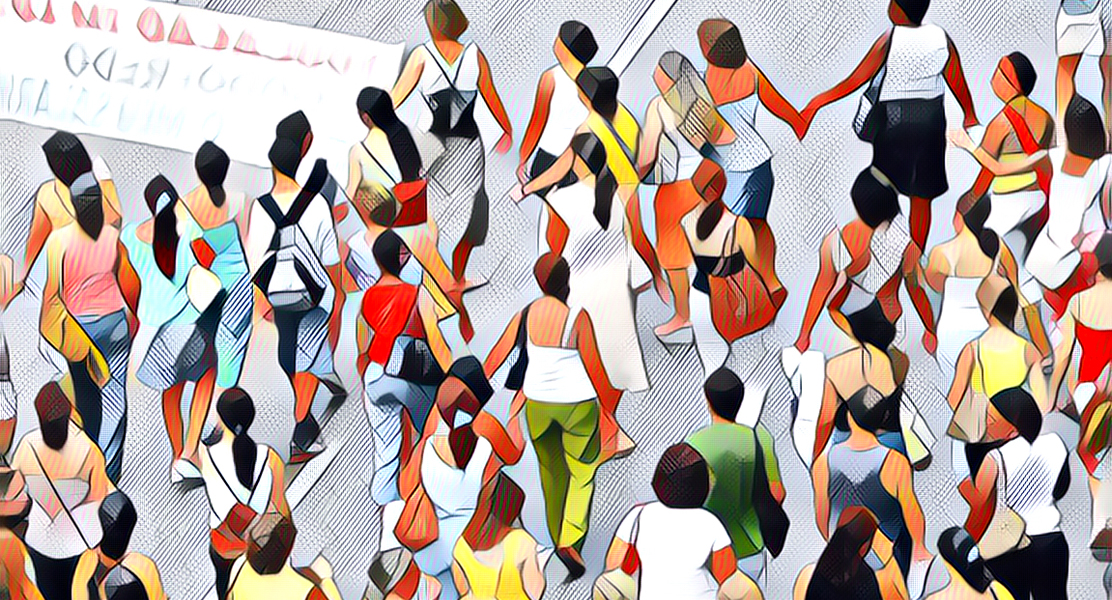Federal court in New York halts worship service restrictions, citing George Floyd protests

A federal court in New York has issued an injunction in Soos v. Cuomo, a case brought by Catholic priests and Orthodox Jewish congregants challenging worship service restrictions designed to prevent the spread of the coronavirus. Judge Gary Sharpe halted enforcement of current regulations limiting indoor worship services to 25% capacity and outdoor services to no more than 25 persons. The court in its opinion pointed to other secular gatherings – including the mass protests in response to the police killing of George Floyd – as evidence that the restrictions improperly single out religion.
But wait. Didn’t the Supreme Court recently uphold state restrictions on worship services as constitutional? And wouldn’t that be binding on all federal courts? Yes, but Chief Justice John Roberts also recognized “broad limits” that may not be crossed under the First Amendment. Specifically, Judge Sharpe emphasized a 1993 case (Lukumi v. City of Hialeah) in which the Supreme Court warned against laws regulating religious conduct that decline to regulate secular conduct “that is at least as harmful” to the concerns motivating the law.
While Chief Justice Roberts found California’s worship regulations at issue earlier this month did not run afoul of that principle, Judge Sharpe held the New York restrictions went too far. Most interesting in the opinion was the court’s discussion of the statements of encouragement by state and local officials toward mass outdoor protests where social distancing was not observed amounted to a “de facto exemption” from enforcement of the restrictions on outdoor gatherings:
Governor Cuomo’s comments, which applauded and encouraged protesting and discouraged others from violating the outdoor limitations, likely demonstrate the creation of a de facto exemption.
Mayor de Blasio … has also actively encouraged participation in protests and openly discouraged religious gatherings and threatened religious worshipers as set forth above. The City’s argument that temporary selective enforcement of the challenged laws with respect to mass race protests is a matter of public safety …would perhaps be legitimate but for Mayor de Blasio’s simultaneous pro-protest/anti-religious gathering messages, which clearly undermine the legitimacy of the proffered reason for what seems to be a clear exemption, no matter the reason. Governor Cuomo and Mayor de Blasio could have just as easily discouraged protests, short of condemning their message, in the name of public health and exercised discretion to suspend enforcement for public safety reasons instead of encouraging what they knew was a flagrant disregard of the outdoor limits and social distancing rules. They could have also been silent. But by acting as they did, Governor Cuomo and Mayor de Blasio sent a clear message that mass protests are deserving of preferential treatment.
The state’s specific authorization of outdoor graduation ceremonies was another basis for the judge’s order halting enforcement of the restrictions limiting outdoor gatherings to 25 against worship services, though the court ruled that such gatherings are subject to social distancing guidelines.
As for indoor worship services, the court noted that worship services are the only gatherings subject to a 25% capacity restriction, other businesses having moved to a new phase of re-opening that allows 50% capacity. For that reason, the court also ordered a halt to enforcement of the 25% capacity restriction on indoor worship services, ruling that worship services must be allowed to reopen to the same extent as other similar businesses which are afforded a 50% capacity.




